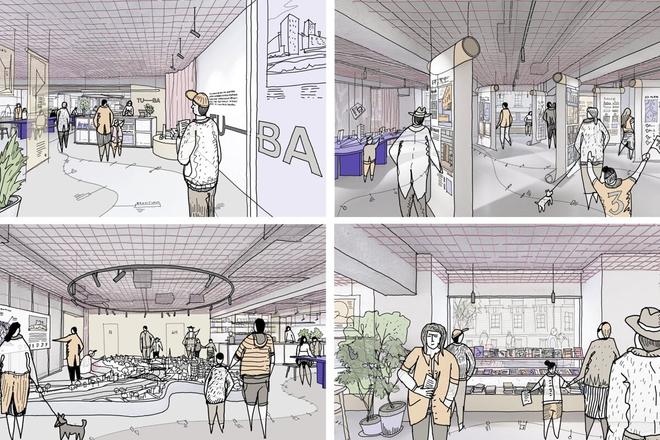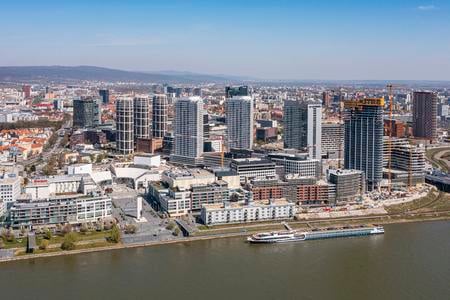Bratislava does not need another platform for dialogue on its development and vision, especially not sponsored by major developers operating in the city. The Metropolitan Institute of Bratislava (MIB) is a sufficient platform for dialogue on the new city master plan, Dana Čahojová, the mayor of Karlova Ves, one of 17 Bratislava’s boroughs, said in reference to the new space called TU-BA (Tu v Bratislave, Here in Bratislava in English) to be created by MIB.
Earlier this month MIB medialised its plans to open the TU-BA site in the city centre at the corner of Štúrova and Medená Streets in the autumn. It is to be a venue for exhibitions, lectures, discussions and participatory meetings on urban issues.
The project comes at the start of the process for creating a new Bratislava zoning plan. The current one dates back to 2007, while it was already considered obsolete when it became effective. As consequence, the real estate projects of developers need the city to adopt changes to it, a very time-consuming process.
The new venues are to be funded entirely by partner contributions from companies, including the developers JTRE, Lucron and Penta Foundation, Alto Real Estate, Corwin, Cresco, Immocap, ITB Development, Vi Group, YIT, as reported by the Sme daily, organisations and individuals.
In creating a dedicated space for architecture, MIB has taken inspiration from Prague. However, the Czech CAMP is financed from public resources.
MIB defends the creation of the platform and considers the doubts to be unfounded.
In Čahojová opinion, the new platform represents one of the other PR activities, but it does not represent real work on the city’s new zoning plan.
“Moreover, the sponsorship of major developers primarily raises doubts about whether the new zoning plan will not cater to them and their commercial interests,” she said.
Čahojová reiterated that the MIB was and still is supposed to be the processor of the new Bratislava zoning plan, financed from the city’s budget. It is a strategic development document, which is supposed to provide a concept for the development of the city, reflecting and fulfilling, above all, the requirements and needs of the inhabitants. She noted that the establishment and equipment of the MIB, both material and personnel, cost the city a lot of money. At the same time, the municipality, including the MIB, has a number of physical spaces and platforms for conducting dialogue on the development of the capital.
When asked whether it is possible to ensure “neutral ground” as declared by the municipality, she replied that there is no neutral ground in the preparation of the document.
“Either the new city plan will reflect the demands and needs of the residents, that is, it will reflect and fulfil the public interests,” said Čahojová, “or it will accommodate major developers, the sponsors of the new platform, for whom it will create room for compromising the conceptuality and professional independence of the new zoning plan.”
In her opinion, Bratislava does not need the creation of more and more platforms, but honest conceptual work of MIB experts on the new city’s zoning plan. They are supposed to create a proposal, preferably in several variants, and then subject them to public discussion with the active involvement of experts and the general public.
The MIB declares transparency and rejects fears of developer interference.
“The partners who have financially supported TU-BA are not entitled to interfere in the programme,” the MIB wrote in its statement for TASR. “Therefore, the fears of developer interference in its activities are absolutely unfounded.”
The MIB assured that they emphasise the complete transparency of cooperation and by setting up TU-BA exclusively from external sources, it additionally saves the financial resources of the capital city.



